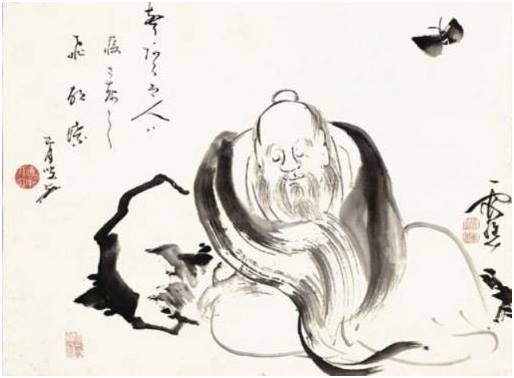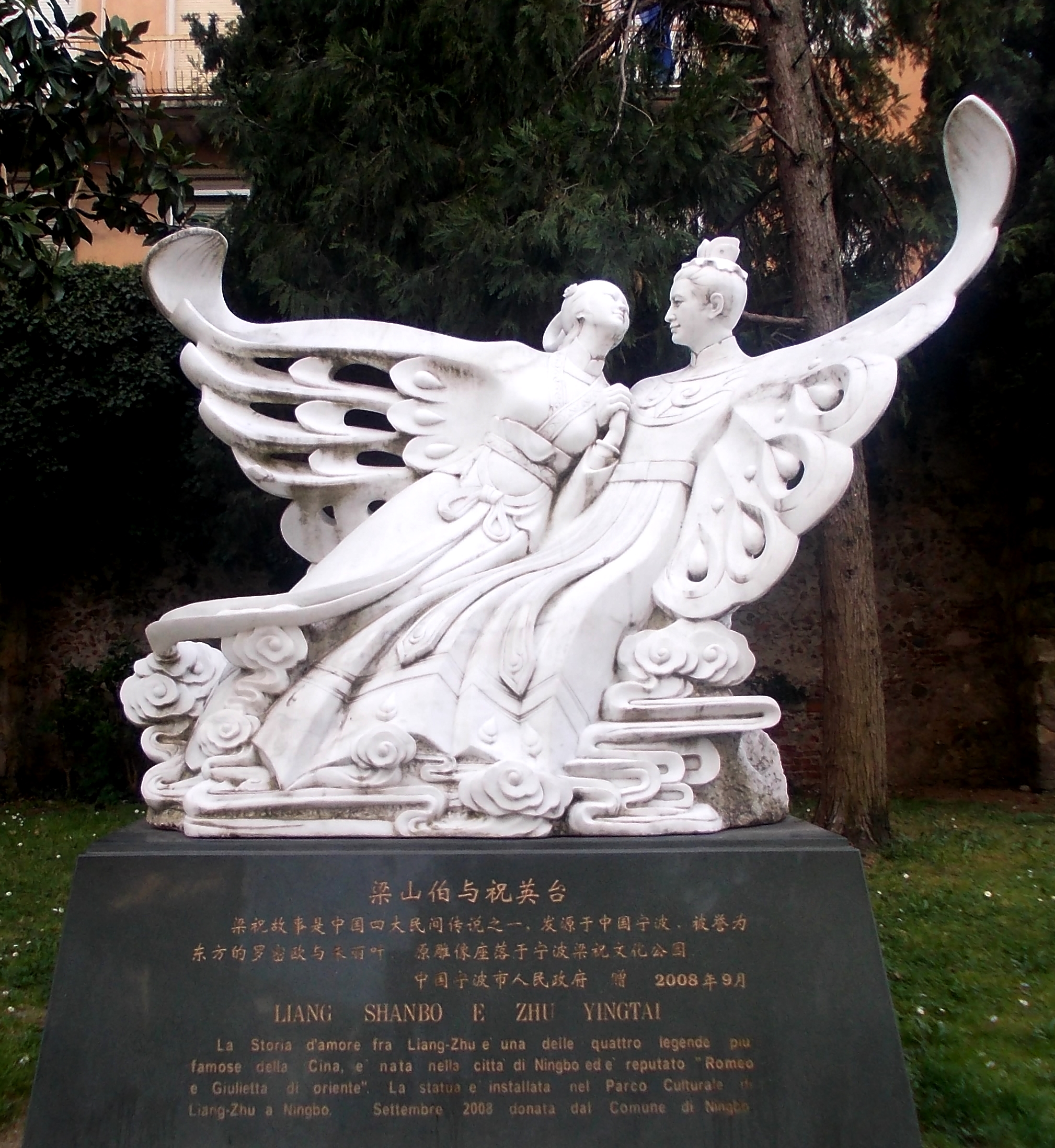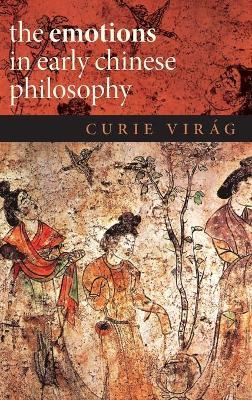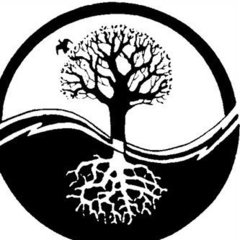-
Content count
1,310 -
Joined
-
Last visited
-
Days Won
16
Posts posted by Geof Nanto
-
-
50 minutes ago, almaxy said:From Damo Mitchell's Facebook titled Common Errors in Practice:
QuoteAlways Standing (Too Yin)
A very common error is within schools that over focus on standing postures and static exercises; an example of this would be many Zhan Zhuang (站桩) schools who solely do this type of static exercise. Whilst there is nothing inherently wrong with static Qi Gong postures, they are the place where most of the internal work is done, they should not be practiced on their own. There should also be moving exercises that enable the Qi to flow and the body to relax whilst in a more dynamic state. Sadly, the vast majority of solely-standing practitioners that I have met are very stiff, lack energetic movement within the body and are essentially making themselves too ‘Yin’.Yin and yang are used in so many different ways in Daoism you really need the full context to understand what is being referred to. In the above context yin obviously refers to something undesirable. In a different context yin may refer to something desirable. Here's a quotation from Damo's White Moon on the Mountain Peak:
QuoteHumility
Humility is an extremely Yin state of being. To be able to place yourself behind others is a difficult thing but important in Daoism. Energetically, this serves to create a powerful vacuum within your Xing, which draws spiritual learning towards you. When humbling yourself before a trusted teacher (or a deity in religious Daoism), you are manifesting the potential to draw teachings into the centre of your being. This is why so many practitioners in the past have had deep spiritual experiences when prostrating themselves before statues of Daoist immortals. In Daoist teachings, it should be one of your aims to be humble beneath the entire universe and understand humility before all beings. In this way the power of Dao, which flows through the cosmos, can enter you and make every aspect of life your teacher.
-
 2
2
-
 2
2
-
-
OP deleted. Will re-post at a later date...maybe.

-
 1
1
-
-
2 hours ago, stirling said:Quod erat demonstrandum.

I assumed Google Translate would give everyone the same result. It seems that’s not the case. Or perhaps your attempt was just a blip in the system. I’d be interested to learn what translation other people get for this passage.
Out of curiosity, I regularly translate Awaken’s Chinese posts. She is an experienced practitioner and has much knowledge. I find it valuable to learn the perspective of a Chinese practitioner well versed in Buddhism and Daoism. For straightforward sentences, Google Translate does surprising well. But once she includes technical terms relating to spiritual practice, the result is jumbled nonsense.
However, as far as I’m concerned, Awaken has every right to post here in Chinese if she so chooses. But as I recently found out for myself when I tried conversing with her using Google Translate (beginning here) the result is far from satisfactory.
-
 1
1
-
-
-
I likewise used Google Translate on that post of Awaken's and got a much more coherent result:
QuotePure Land and Zen
The two different sects are the two major sects in the Buddhist world at present.
Another major sect is Tibetan Tantric Buddhism.
Pure Land Buddhism and Zen Buddhism distort the original teachings of Buddhism very seriously. It can be said that it completely deviates from the original intention of the Buddha.
So now more and more young people are turning to Southern Buddhism, because the truth becomes clearer and clearer, and everyone can see who is a blind faith and who is a true practitioner.
-
 1
1
-
-
5 hours ago, Apech said:Thanks, I watched most of the video and I have to say that this kind of analysis seems to replace 'literalism' with another kind e.g the king is the Self. Well to me the king is God the Father not the self, for instance. Also the princess in the story is very girlie, disgusted by the frog, ungrateful and manipulative - as well as not seeming to be able to act for herself. To me, and I accept this is my opinion only, this seems to be un-affirming of positive yin qualities. The frog of course is an ancient 'symbol' of primeval chaos energy (see Ogdoad ) which is essentially phallic.
Thank you for your courteous reply, Apech. As far as I'm concerned, that's a good way to conclude this discussion.
-
 1
1
-
-
On 12/02/2022 at 4:14 PM, ilumairen said:
To me the line, "you don't need a frog when you can do it for yourself.” seemed to rather upend the “masculine only” view - which is why I rather liked his tale.As I said, I’d prefer to leave off with what I’ve already written. That comment of Apech’s has plenty of background context from other discussion on this forum. My response was based on my overview of the whole situation, including other comments by Apech, and also my perspective on what spiritual practice entails. I stand by what I wrote. But I know from previous interactions with Apech we are on very different spiritual paths. Hence, what is right for each of us is different. I’m content with the path I’m on and I assume Apech is likewise content with his path. Of overriding importance for me is that I come here for connection and do not like it that I’ve stirred up conflict. Now that I have, I’m wanting to diffuse the situation but without surrendering my perspective.
Mine is a path that resonates with Jung’s insights. With that in mind here is a Jungian overview of the fairytale in question. I’ll leave it open to everyone to interpret for themselves what it means in relation to Apech’s post. To my reading, Questionmark already has a strongly developed yang (masculine) side with her powerful intellect and needs support in valuing her innately strong yin (feminine) sensitivity to subtle energy flows that she revealed in her OAD topic and elsewhere. Rather than giving this support, I read Apech as trying to squash it. (My apologies, @questionmark and @Apech for giving this mini-analysis without your permission. I make no claims that it is right, only that I’m being honest about what I feel. I stand open to being corrected by both of you.)
(Edit to add: This video gives the gist of the fairy tale and serves as a basic introduction to Jungian archetypal analysis. Even though the analysis lacks nuance, for a 7-minute introduction it serves its purpose well enough. For a more comprehensive exploration of archetypal analysis of fairy tales, I highly recommend Marie-Louise von Franz’s excellent books on the subject mentioned at the beginning of the video.)
-
 2
2
-
-
9 minutes ago, Bindi said:Yes I realised that but I didn't find it funny. I'm okay though to leave it at what I've already written, understood or not.
-
 2
2
-
-
-
7 hours ago, Apech said:The cat sat lazily under the shade of a great tree, chewing a piece of grass, while @Nungali fiddled with the knapsack.
"When will @zerostao get back with the food?" he asked.
"It's a long way back to the Hamlet of Drew - and you did insist on a burger," said @Nungali.
In front of them, beside a large pond @questionmark played with a silver tinkling ball, throwing it high in the air and catching it, whooping and giggling like a girlie.
Up it went, high into the blue sky, down it came into her outstretched hands. Once, twice. But on the third time the ball span out from her hands and plopped into the dark waters of the pond.
Silence.
"Help me get my ball back!" shouted @questionmark to the others.
Silence.
"Come on!"
The cat shifted his weight slightly.
"You'll have to ask him," he said pointing.
On a lily pad sat a large frog, with big bulging eyes and a flicking tongue.
"What!" said @questionmark, "are you kidding."
"Give him a big kiss and he'll do whatever you want," replied the cat.
"Oh! I suppose he'll turn into a prince, will he!!!"
"No but he'll give you a T.O.A.D. for sure."
"Fuck that," said @questionmark, and plunged into the water and fished out the silver ball.
"There," she said "you don't need a frog when you can do it for yourself."
Yueya followed the progress of the intrepid hobbits using his scrying screen (powered by Windows 11) and was greatly amused by some of the comments. But not this one.
Are you using your formidable intellect and narrative powers here to gain insight into hidden aspects of your own psyche? Or are you using them to shield your heart from the profound mysterious of the feminine? For me, allowing vulnerability is vital for feeling my way into an intimate relationship with Self. I have no interest in the type of isolated, masculine only, strength you seem to be implying.
-
 1
1
-
 1
1
-
-
18 hours ago, liminal_luke said:Thanks, Yueya. I imagine most people here would agree that sex is more than just physical, there's an energetic aspect. This energetic aspect is what makes phenomena such as OAD possible. I think sexual energy spans a wide spectrum: from the very physical and dense to the most ethereal. Sex is a metaphysical bridge connecting body and spirit. Like Daoism, sex is about interdimensional integration. (About babies too but I digress.) It's a huge life project, harmonizing the rock hard physicality of earthly incarnation with the many layers of the subtle body. For many, sex is hard to talk about without snickering because it goes so deep.
Worth repeating. And obviously you hit a sore point with your reference to childish snickering.
-
 1
1
-
 2
2
-
-
The association with Drew Hempel, understandable as it is from the title of the topic, has unfortunately led to a mocking and dismissive discussion. No one has acknowledged the reality of what @questionmark is asking about.
Rather than writing about my own personal experiences, I did a quick web search and found this article which may at least provoke the taking of this topic seriously.
-
 1
1
-
 2
2
-
-
The large tree in the foreground is one of my favourite tree species here. Locally, we call them Applebox trees but the botanical name is Angophora subvelutina.
The photo is taken from near my house looking down my driveway. (The roof you can see on the left is my studio, located about 200 metres from my house.) Looking at this photo, you wouldn’t know that a little over two years ago there was not a green leaf in sight after the devastating forest fires of Nov 2019. All the landscape for tens of kilometres in all directions was charred black. On my whole property which covers 75 acres I lost many, many trees including several which I dearly valued near my house and studio. For instance, before the fire there were another three large Applebox trees that grew near the one in the photo.
I love the way Applebox trees grow such twisty branches. They also produce prolific amounts of flowers in late spring / early summer. The bees go crazy harvesting their aromatic pollen. They get to grow old and large even in areas that are selectively logged because their twisty branches and crazily grained wood make them unsuitable for milling. They are the epitome of Zhuangzi's useless tree.
Although I lament the destruction of flora and fauna caused by the fire, the landscape is recovering well with a lush understory of new growth. Sadly, the forest canopy is still sparse, as is what was once abundant native wildlife. But plenty of birds; birdsong all day.

-
 5
5
-
 1
1
-
-
1 hour ago, zerostao said:"Please find Bindi." Z implored
I believe @Bindi has an out of control bushfire getting uncomfortably close to her campsite. (In real life.)
-
 4
4
-
-
7 hours ago, steve said:"The same desirous energy that ordinarily propels us from one unsatisfactory situation is transmuted, through the alchemy of tantra, into a transcendental experience of bliss and wisdom.”~ Lama Thubten Yeshe"The same desirous energy that ordinarily propels us from one unsatisfactory situation is transmuted, through the alchemy of tantra, into ...... [Great Mystery]. "
~ Yueya

-
 2
2
-
-
I first learnt of his passing here, the day before it was announced on this forum. I didn’t feel sad though, rather, I felt a mild elation in that Thich Nhat Hanh was someone who seemingly fully accomplished all that life asked of him. And that’s a rare accomplishment.
I first took notice of him many years ago when a friend sent me a poem of his that strongly resonated with me. It spoke to me of my own experiences of numinousity and dark trauma at different stages along the Way. To me, it’s a poem of inner alchemical transmutation of desire, spoken from the perspective of Buddha-Nature, of Self. But I’m no Buddhist, so I’m interested to learn how Buddhists might interpret it.
I Want it All (Thich Nhat Hanh)
If you ask how much do I want,
I'll tell you that I want it all.
This morning, you and I
and all men
are flowing into the marvellous stream
of oneness.
Small pieces of imagination as we are,
we have come a long way to find ourselves
and for ourselves, in the dark, the illusion of emancipation.
This morning, my brother is back from his long adventure.
He kneels before the altar,
his eyes full of tears.
His soul is longing for a shore to set anchor at
(a yearning I once had).
Let him kneel there and weep.
Let him cry his heart out.
Let him have his refuge there for a thousand years,
enough to dry all his tears.
One night, I will come
and set fire to his shelter, the small cottage on the hill.
My fire will destroy everything
and remove his only life raft after a shipwreck.
In the utmost anguish of his soul,
the shell will break.
The light of the burning hut will witness
his glorious deliverance.
I will wait for him
beside the burning cottage.
Tears will run down my cheeks.
I will be there to contemplate his new being.
And as I hold his hands in mine
and ask him how much he wants,
he will smile and say that he wants it all –
just as I did.
-
 4
4
-
 2
2
-
-
16 hours ago, awaken said:通過英文你也無法與我深度交談,因為我無法寫出深度交談的英文
你好像期望我寫出深度的英文,來跟你用英文交談,但是如果你用功一點,搜尋一下我以前的文章,你就會知道,我受限於英文程度不佳,很難用英文充分表達自己的想法,因為有很多字,我是寫不出來的
所以,你尊重我的中文書寫能力,我也尊重你的英文能力,畢竟現在是網路時代,有google翻譯可以使用,為什麼你一定要堅持使用英文呢?
更何況我們談論的是以中文為基礎的道家思想,不是嗎?
I hear you loud and clear. But so far you’ve shown nothing but misunderstandings and talking at cross purposes. And that makes me sad. For a start, I’m definitely not suggesting we have a discussion in English. But I don’t want to repeat myself by further attempts at explaining what I mean. The language barrier is too great. There’s a better way. Beyond the words there’s a place of real connection:
There’s a big space in this forum
A heart space for those who seek it.
Under the words, a stillness
A place where people can meet across countries, across cultures.
A place where we all speak the same silent language
And feel within our hearts a teaching beyond words.
-
 1
1
-
-
On 22/01/2022 at 11:57 PM, awaken said:喜怒憂『思』悲恐,少了一個『思』,思不是sadness,應該比較接近think這個字吧,只是我的英文太差,想不出來哪個字比較適合,應該是有比較適合的文字
這本書是英文的,以我的程度應該是看不懂的,不過中文經常用成語來表達情緒,你說的用情緒表達這個人的性格,也是有某些成語有類似的表達,比如『不怒自威』,就是形容一個人長得很威風,性格也很嚴肅,讓人望而生畏。
According to Google Translate, in part you wrote: “This book is in English, so I shouldn't understand it to my level...”
This topic is predicated on the insights Curie Virág presents in her book. It was meant to introduce the book to anyone who may be interested in reading it. It wasn’t my intention to create a discussion topic. However, I certainly welcome any discussion relating to the perspectives presented in the book, though I personally may not join in.
From what I’ve read of your posts, you are obviously a dedicated and knowledgeable practitioner. But trying to converse with you at any depth is not possible via Google-Translate. The translations are too clumsy. At the best they give the gist of what was meant, at their worst the result is garbled nonsense.
Hence, I have no idea what this reply of mine will end up meaning to you via Google-Translate. Going on the translation I got of the Chinese characters you substituted for my words in the post of mine you quoted, I am not optimistic:
QuoteGoogle Translate: The ancient Chinese believed that emotions hurt the body, so China basically does not cry for emotions such as sadness and music.
You use what the book describes and a true story to tell the truth about the story I tell the simplest story.
(Incidentally, even though I appreciate the integrity of your intention, changing a member's words when quoting them is not a good practice. It would have been better if you put the Chinese translation below the quotation box.)
-
18 minutes ago, awaken said:古中國的思想認為情緒是傷身的,平和之氣是最優良的,所以基本上不鼓勵喜怒憂思悲恐這些情緒。
Google Translate: The ancient Chinese thought that emotions are harmful to the body, and peace is the best, so basically do not encourage such emotions as joy, anger, worry, sadness, and fear.
While what you write has some truth, the book shows why this summation is simplistic and misleading, as I hoped the extracts above make clear.
-
11 hours ago, exorcist_1699 said:"To those who succumb to life scenarios with emotions or mental tactics , you are called the ordinary ; to those who eliminate those life scenarios with your Xing , you will be called the Immortal" (" 境殺心即凡, 心殺境即仙" )
It is to say that , not only qi of our body organs , but also their emotions , can be used as ' fuel' to cultivate our Xing .
I like that. I’ll take this opportunity to express my appreciation for providing information on this topic and in other posts of yours that is strongly grounded in the mainstream Chinese Daoist tradition. If you care to provide it, I’m interested to learn some more about your practice background.
-
 2
2
-
 1
1
-
-
54 minutes ago, Cleansox said:An expensive book.
Worth it?
I like it but yes, the price is pretty steep. You can get a taste of the content of it from Amazon preview. It takes you up to about the first third of her introductory chapter. Here’s her conclusion to that Introduction:
The wide-ranging views of emotions espoused by early Chinese philosophers reveal a diverse intellectual landscape in which basic questions of ethics and politics were the focus of major concern. The discussions that unfolded were part of more fundamental debates about what human beings were like, and how human beings formed a part of the world and cosmos. The thinkers whose ideas would come to be identified with the mainstream philosophical tradition were united by a shared assumption that the emotions were both intelligent and intelligible, and that they were human instantiation of patterns that pervaded the natural world. Such an idea was encapsulated in the semantic range of the term qing 情, which encompassed feelings and emotions, human dispositions, and the underlying, characteristic reality of things. When the mainstream thinkers joined together this range of ideas, they invoked a certain conception of the natural world to make a distinct argument about the self and the proper form of the ethical life— namely, that the proper life was one in which human beings optimally realized certain potentialities that were inherent in their constitutional workings.The fact that the early mainstream thinkers appealed to the emotions to make their case did not signal a subjectivization of ethics, a choice of the emotive over the cognitive faculty, or a relinquishing of agency. As they defined them, the emotions had the capacity to instantiate the patterned workings of the cosmos, and to actualize these patterns within the person. To this extent, the emotions were objective phenomena that were both natural and normative. Moreover, emotions represented a genuine interface between the self and the world, and— properly realized— reflected true insight into the workings of the world. Finally, the mainstream thinkers firmly rejected the idea that emotions represented nothing more than passive responses to the world. While they acknowledged that, in their ordinary workings, emotions were vulnerable to the influence from the world and might thus threaten one’s inner coherence and self-control, they clearly specified that there was also an optimal state of realization in which emotional fulfillment joined with the patterned workings of the cosmos to confer tremendous power and agency onto the individual. Such an ideal pervaded the thought of all the mainstream thinkers, regardless of school and intellectual affiliation, and would dramatically shape the course of thought and ethical values for millennia to come.
-
13 minutes ago, natural said:Where talent and skill meet there be Joy!
Yes, in the performance. But The Butterfly Lovers is a tragic story.
The Butterfly Lovers is a Chinese legend of a tragic love story of a pair of lovers, Liang Shanbo (梁山伯) and Zhu Yingtai (祝英台), whose names form the title of the story. The title is often abbreviated to Liang Zhu (梁祝).
The story was selected as one of China's Four Great Folktales by the "Folklore Movement" in the 1920s—the others being the Legend of the White Snake (Baishezhuan), Lady Meng Jiang, and The Cowherd and the Weaving Maid (Niulang Zhinü).

Monument to Liang Shanbo and Zhu Yingtai
-
 1
1
-
 2
2
-
-
An informative book:

The Emotions in Early Chinese Philosophy by Curie Virág
In China, the debate over the moral status of emotions began around the fourth century BCE, when early philosophers first began to invoke psychological categories such as the mind (xin), human nature (xing), and emotions (qing) to explain the sources of ethical authority and the foundations of knowledge about the world. Although some thinkers during this period proposed that human emotions and desires were temporary physiological disturbances in the mind caused by the impact of things in the world, this was not the account that would eventually gain currency. The consensus among those thinkers who would come to be recognized as the foundational figures of the Confucian and Daoist philosophical traditions was that the emotions represented the underlying, dispositional constitution of a person, and that they embodied the patterned workings of the cosmos itself.
Curie Virág sets out to explain why the emotions were such a central preoccupation among early thinkers, situating the entire debate within developments in conceptions of the self, the cosmos, and the political order. She shows that the mainstream account of emotions as patterned reality emerged as part of a major conceptual shift towards the recognition of natural reality as intelligible, orderly, and coherent. The mainstream account of emotions helped to summon the very idea of the human being as a universal category and to establish the cognitive and practical agency of human beings. This book, the first intensive study of the subject, traces the genealogy of these early Chinese philosophical conceptions and examines their crucial role in the formation of ethical, political and cultural values in China.
-
 1
1
-
 1
1
-
-



Zhan Zhuang - Grounded or Ungrounded
in Daoist Discussion
Posted
Unfortunately, that’s my conclusion too for the reasons you concisely outline earlier in your post. I would very much like it if that wasn’t the case because Awaken is obviously a dedicated practitioner.
For me personally, my heart wept when I saw how this discussion has devolved. I wish that wasn’t the case. But this forum has established behaviour protocols for good reasons and Awaken has clearly breached them. Because of her innate connection with aspects of the life-enhancing turmoil and elusive harmonies of Chinese Daoism as a living tradition, I’d dearly like it if she is given every chance to modify her abrasive and offensive manner.
(I could say much more about the situation from an inner energies perspective but I don’t think it’s appropriate here.)